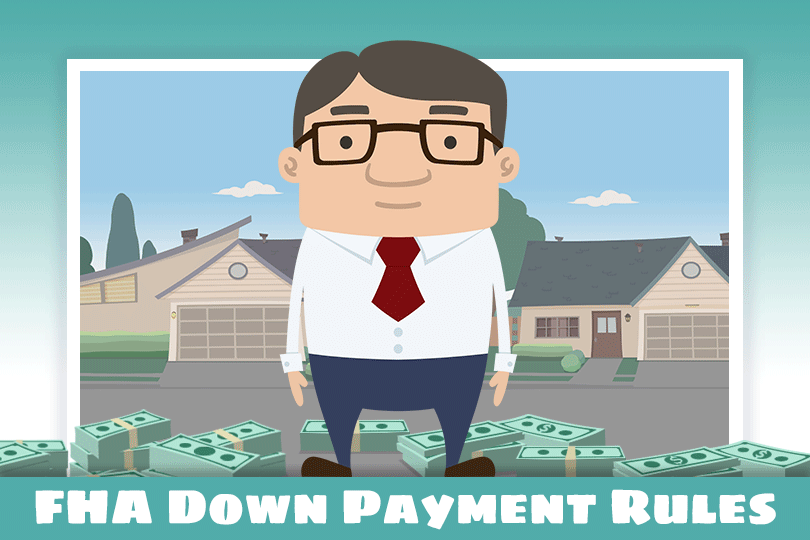Things to Know About Making an FHA Loan Down Payment
August 9, 2021
Lenders Need to Mitigate Risk
Making a sizeable down payment gives lenders peace of mind, knowing that a borrower would not part with a large amount of money if they did not intend to come through on the entire loan. Depending on the type of mortgage you apply for, the down payment requirement may vary. For most conventional loans, borrowers are generally required to pay 20% of the purchase price, whereas FHA loans have a low requirement of 3.5%. FHA-approved lenders feel more comfortable accepting this smaller amount since the loans are insured by the FHA, and the lenders are protected in the case of borrowers defaulting.
Private Mortgage Insurance
Even though most conventional loans come with the 20% minimum down payment criteria, there are borrowers who cannot meet that requirement. This does not always exclude them from being approved. In the same way the FHA charges a Mortgage Insurance Premium with their loans, conventional mortgage lenders require that any borrowers paying less than 20% toward the down payment must purchase Private Mortgage Insurance (PMI).
If you are considering a conventional mortgage, it is important that you understand how Private Mortgage Insurance works. While it helps you qualify for a loan that you could not otherwise afford, it does increase the cost of the loan itself. You can make a lower payment upfront, but the monthly PMI premium will be added into your monthly mortgage payments. Additionally, PMI does not protect you, it protects the lender from losses if you are unable to pay back the loan. In most cases, you will not have to make PMI payments for the life of the loan. Pertaining to the conventional loan, once you have built up more than 20% equity in your home, you can put in a request to have the monthly PMI charge dropped. Talk to your loan officer to make sure this is an option before you sign!
Down Payments and Interest Rates
While the amount of money you put down on a home may not affect the interest rate you receive from the lender, it does impact the amount of interest you pay over the life of the loan. Making a larger down payment means paying less in interest, since you are borrowing less money. Imagine that you are buying a $200,000-home with a down payment of $20,000. You would be paying interest on a $180,000 loan. (200,000 – 20,000). Whereas if you paid only $10,000 upfront, you’d be paying interest on a $190,000-loan instead.
Down payments are one of the most daunting factors of homebuying for many first-time buyers. Saving up such a huge chunk of funds is not always an affordable option for most people, and so they get stuck in a “renter’s trap.” While it can be a little overwhelming, it’s important for prospective homebuyers to do their research and learn about their options, including Down Payment Assistance Programs. Head to www.fha.com to for a comprehensive list of programs for each state.
------------------------------
RELATED VIDEOS:
Consider the Benefits and Risks of a Joint Loan
Borrowers Should Know About the Origination Fee
Everyone Needs to Pay Their Property Tax

FHA Loan Articles
March 29, 2021The FHA helps first-time and low-income homebuyers by having lower down payment requirements for its borrowers. Despite this lower credit eligibility criteria set by FHA, it is important to remember that FHA-approved lenders can set their own requirements
March 24, 2021One of the major arguments people have for renting instead of buying is the large upfront cost of a down payment. Depending on the type of loan program you apply and are approved for, this could mean anything between 3.5% and 20% percent of your purchase price.
March 21, 2021The two basic types of home loans are fixed rate and adjustable-rate mortgages. The mortgage market offers many other options to homebuyers, but these two are the most common, and the first pair from which to pick.
March 15, 2021A key step in the mortgage process is the home appraisal. In the case of home purchase or refinance, this is a task that is almost always required by the lender, and it is important that potential homebuyers understand what, how, and why of a home appraisal.
March 10, 2021The renewable energy industry is growing more and more every year, and many homeowners have implemented energy-efficient strategies in their homes. This can include programmable thermostats, solar panels, new insulation in the attic, etc.







